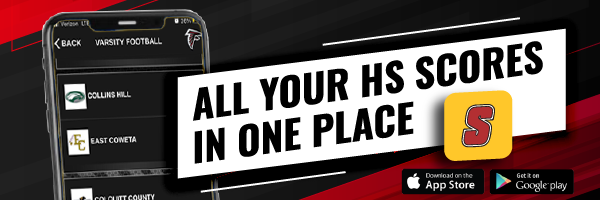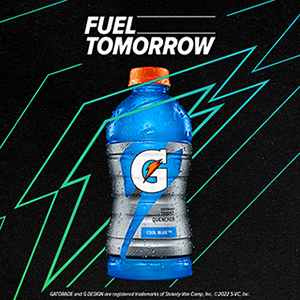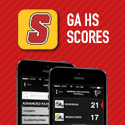
When running a high school athletic department, there are numerous factors that go into maintaining success and keeping your school’s athletic program from falling behind.
And in some instances, the head football coach and the athletic director are the same person. They’re the face of the program on a Friday night after a football game and they’re the brains behind the scenes for the entire athletics department.
While being the athletic director holds an enormous amount of responsibility for one person, being the head football coach and athletic director is not a job for the weary.
Though there are not as many people that hold both titles at one high school at a time, the few that do are truly dedicated to the success of their athletic programs and how they are represented during competition. They deal with their entire school’s athletic program on their own while also looking to maintain the success in the sport they coach.
The people in these positions are constantly working, helping other coaches and sports around the school while also keeping their own team in the back of their mind. They are constantly thinking about what they can personally do to keep the train moving and make sure their team is where they need to be by the time the season comes around.
In the latest issue of the Undercover Series, we dive into what it’s like as an athletic director, but also how being a coach affects their decision making when deciding what is best for their athletic programs.
Q. Holding both titles of football coach and AD, how do you make sure every sport in your program is receiving enough attention?
A. “Well I think as you run your own program and understand what it takes, football is kind of a different animal because there are so many more coaches on the staff, usually a lot more player participation in the football program so you are used to dealing with a lot of pieces already. I just kind of approach it as ‘What would I like my AD to do?’ I have been to where I have worked for an AD and ran my own program and I am not here to micro-manage coaches but I am here to help facilitate them and, more almost, a servant role if you will. At a small school, we kind of share all of the same athletes. When my football player goes to basketball or goes to another sport, I want him to be well-taken care of like I took care of him.”
Q. Talk about the importance of the off season and how it impacts your team? What are the most important things to handle in preparation for the season?
A. “Offseason is where you win and lose games for sure, it starts in the weight room and the kids are competing every day and doing what we need to in the classroom as well. Moving into the summer, you have to have a great summer. Definitely what you do in the winter, spring and summer I think really dictates what you are doing in the fall. By the time you get to fall, it’s really game planning and getting ready for opponents every week with how our schedule is set up. Well right now where we are at is getting our staff into the right positions, that’s the foundation. Were a little bit behind on that because we are in a transition phase, but really it is attacking the weight room and attacking the offseason, being organized and there is no hidden secret about it, need to get in the weight room and they have a nutrition program they need to fundraise and be active in the summer, that leads to a successful fall if you handle all of that well.”
Q. What does it take to make a run in the GHSA playoffs? What does it take to win the region? What does it take to be successful?
A. “Depth. I don’t know what you would consider a deep run, I consider playing to Thanksgiving to be successful, Elite Eight. That’s 13 games. Usually you get some really good opponents and in football you deal with injuries. I definitely think it takes depth, I think you have got to be good up front, on both the offensive line and defensive line. You have got to get lucky too, you have got to get the ball to bounce your way, a call to go your way. The way that the brackets are set up is sometimes, sometimes you get a bad draw, that goes with that luck aspect. How we manage our team down the break, keeping them fresh and keeping them engaged. A lot of times I will see teams and they are tired of playing, early. There is a lot of factors that go into it.”
Q. What makes a job opening appealing to a coach? Roster, facilities? What makes a coach want to stay at a particular school for an extended period?
A. “I think the ability to win is obviously the number one draw. Now what does it take to win? Good kids first, good administration support, good community support. Those three things are probably going to set you up more so than necessarily facilities. You can have the greatest facilities but if you don’t have talent with the kids it doesn’t matter how good or bad your facilities are. Roster, talent, ability to win, admin support and community support and facilities is kind of icing on the cake.”
Q. With this being another year your school is being reclassified, how do you feel that has affected your school in the past and what are your thoughts on schools being reclassified to different classes and regions year-to-year? How has your team been affected?
A. “I think I have been at a single-A school for over half of my career now it really affects the small schools a lot, because here we are in the middle of single-A as far as enrollment numbers, I think we are like 325, but we are going to play teams that have almost double the numbers we have in the playoffs possibly. It’s a big deal. I mean it would be as big of a deal as someone having 1,000 kids against someone with 2,000 at the school. That’s the difference between 3A and 5A now I believe. But, we have the same ratio difference in single-A. So it is a big deal, I do think the new reclass will help some of the watered down regions, I think a lot of that stuff is gone and is going to make the playoffs more special than it has where we had a lot of four and five team regions and teams going 2-8 making the playoffs. It’s always a crap-shoot. We have been on both ends of it. When I first got here, we were in the bottom of 2A and we were good and competitive but we just couldn’t get over the hump of teams like Benedictine, GAC, Lovett, you know these bigger private schools in the same class and that’s kind of hard to compete with compared to their resources, but as soon as we dropped down to single-A all of a sudden we are in the hunt for a championship pretty much over half of the years we have been here. It shows what reclass will do for you.”
Q. What are some of the biggest changes that you have noticed to high school sports over the years?
A. “That is kind of the trickle-down effect you know, this NIL (Name, Image, Likeness) and portal stuff, I am just praying it doesn’t trickle down into high school, I know it is, but I hope it stays out of the sport as long as possible. Keep our sport as pure as possible.
Q. From your perspective, what are the biggest issues in high school sports these days? What are solutions to these problems?
A. “I would probably say recruiting. That’s a direct effect of kids seeing the portal on Saturday and seeing kids not happy so they move to this school or maybe that school, and I know that is a bigger issue in Metro Atlanta but it’s starting to trickle down to rural-Georgia as well. That’s above my pay grade, I’ll let them figure out what the best solution is because there is always going to be the ‘if’s’ or ‘in case’ and nobody ever wants to take away a child’s chance to play the game we love and you know every situation is different and the GHSA is only so big and that’s hard to manage a state this big on every transfer getting approved or denied, but I do think that there has got to be more punishment for coaches that are doing undo influences in my opinion. Where they are actually recruiting the kid and not where kids are moving for better opportunities.”
Q. As an AD, what would you say is something that is important in regards to building the best athletic program?
A. “Communication. Laying out expectations for the entire coaching staff to carry through and there is a buy-in that we want to represent our school and our athletic department in the most first-class possible way we can. Always be a professional and always do what is right for the kids and usually when you take care of those things, you usually create success.”
Q. Thoughts on the expansion of the GHSA in different sports? Flag Football, etc. What’s the best way to get your school involved?
A. “I think we played flag football for the first year here, everywhere I noticed, flag football has really taken off. I think the concern for smaller schools such as us is do we have enough kids to do it and to play all of these sports because a lot of times it’s the same kids and we are having to share kids for multiple sports. For example soccer and track are both going on right now. Well we have a ton of kids that are trying to do both. The concern from my whole athletic department is we need it because it’s not fair to the kids and they need the best opportunity possible and we need the best kids to play everything possible, but it is tough at single-A schools to maximize that well because ‘Little Joe’ may have a track meet today and a soccer match tomorrow and he’s not getting the practice and development in both sports that he needs to be getting so he can be the best he can possibly be.”
Q. As NIL is quickly becoming a factor in high school sports, what are your experiences with it so far and what are your thoughts about it in high school sports?
A. “I haven’t had any experience with it because I have been in single-A schools, and you know a lot of these small towns are maximizing all of their resources just to get their kid the basic needs to play, much less an NIL deal. You know I think NIL was created with the right intentions for the kids being able to make money upon their name, but people get lawyers involved and have figured out loopholes to pay for play if you will, and that is kind of an uneasy feeling to be in. Some of these kids that are heavily recruited are probably getting major NIL deals, and the right kids are going to have to be mature and be able to handle that. Can you imagine a 16-year-old kid making more than his geometry teacher? Being able to respect his geometry teacher because he is getting six-figures in an NIL deal. Those are the issues where its kind of scary but that is the world we live in and I’m sure there is more coming down the pipe as the sport grows.”
Q. In your eyes, what are the keys to maintaining a successful athletic program?
A. “Getting your programs to work on building their feeder programs and working with our recreation department, and youth programs to get our kids involved at an early age and give them camps and stuff and give them more exposure to what their high school culture is going to be one day, and getting them involved at an earlier age including having the right people in place to develop them and getting them ready for their high school programs. I think that is one of the big keys in maintaining, because in a small school you usually are going to cycle up and down, but the more consistent of an approach throughout your whole program, grades 6-12, and feeder programs you can eliminate some of the highs and lows and you get a more consistent approach every year.”
Q. How far did you get in your playing days? Do you feel that experience has helped you throughout your career?
A. “Yeah, I only played through high school, I attended XXXX State and I worked as a student assistant during my time there, but obviously playing on Friday nights makes you fall in love with the game and the atmosphere on Friday nights definitely motivated me to go into coaching. I played at XXXXXX County High School and I played middle linebacker.”
Q. As both a coach and AD, what is the best way to manage your time?
A. “Be as organized as possible. I’ve only had the AD role for I think just four weeks now, and we are still trying to figure out what the best organizational skills are, or how to get organized to do all of that.”






















































